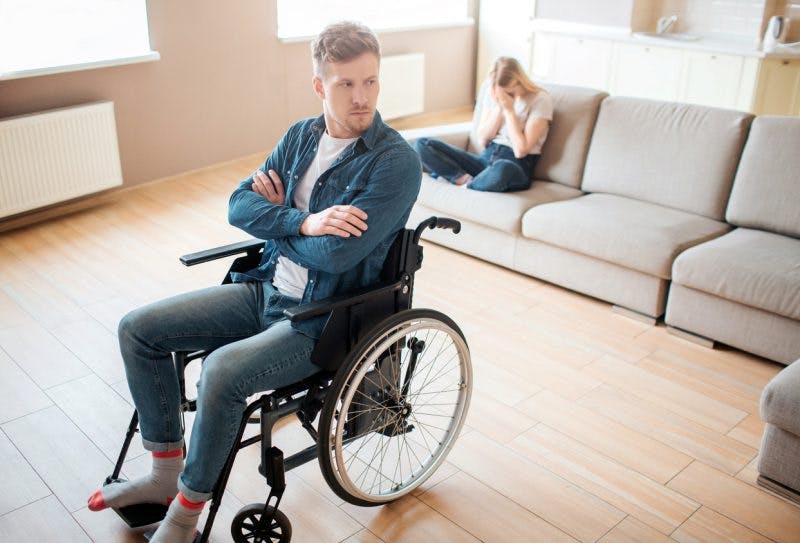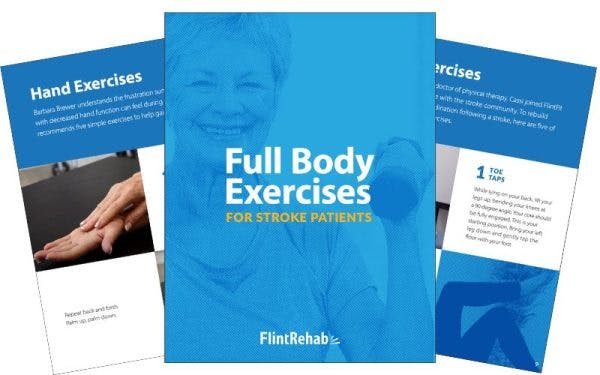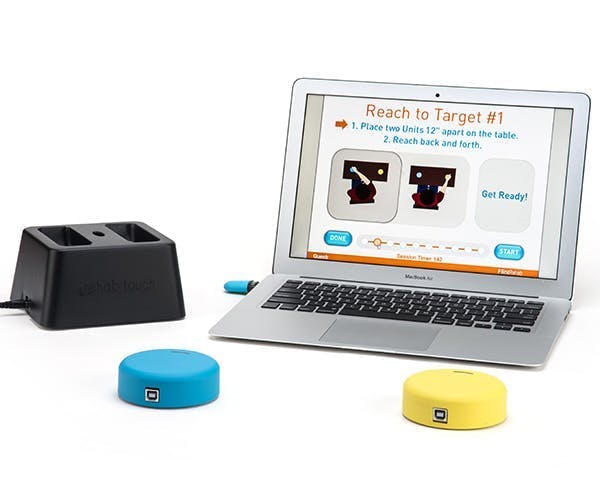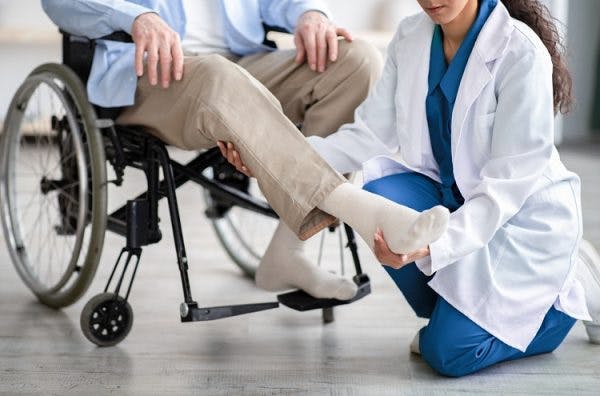Self-centered behavior after stroke is one of the many potential personality changes a survivor may experience. This can be the case regardless of the survivor’s disposition pre-stroke and can be a struggle for caregivers to navigate. However, if your loved one becomes more self-centered after stroke, know that this is not personal.
Usually, self-centered behavior after stroke has nothing to do with vanity or selfishness. Rather, this is often a result of the stroke’s neurological impact. To help you cope with this behavior change, you’re about to learn why self-centeredness might happen after someone experiences a stroke. Then, we will review different strategies to help survivors and caregivers cope with personality changes.
What Causes Self-Centered Behavior After Stroke?
The secondary effects a survivor experiences depend on the area of the brain affected by the stroke. Some areas of the brain are responsible for movement, some control sensation, and some play a role in cognition. Likewise, there are specific areas of the brain responsible for behavior and emotions.
When these areas are affected, a stroke survivor may experience notable changes in behavior. Specifically, self-centered behavior after stroke might be caused by damage to the right supramarginal gyrus. The right supramarginal gyrus is the part of the brain responsible for empathy. It gives us the cognitive ability to put ourselves in another person’s position and feel for them.
Similarly, the brain’s anterior insula plays a role in empathetic behavior, specifically in the brain’s right hemisphere. If a stroke occurs in these areas of the brain, individuals may lose the ability to empathize with others. This can cause them to appear unaware of how their behaviors impact those around them.
A stroke in the frontal lobe may also contribute to self-centered behavior. This is because the frontal lobe plays a role in regulating emotion and controlling impulsivity. Sometimes frontal lobe strokes result in childlike behavior, which may coincide with self-centered behavior, too.
While this may not be easy, try to remember that a loved one demonstrating behavior that is self-centered after stroke is likely not doing this intentionally. Instead, it may be the impact of the stroke and the resulting tissue damage in the brain causing these personality changes.
Is Self-Centered Behavior After Stroke Temporary?
It’s important to understand that not all strokes cause self-centered behavior and that everyone copes differently. The effects of stroke vary widely between survivors as our brains are all wired uniquely. These effects can impact all facets of daily life, including the daily life of caregivers. Thankfully, there is hope for recovery after stroke, including the recovery of emotional regulation.
Some stroke secondary effects go away on their own through a phenomenon known as spontaneous recovery. Generally, these rapid returns in function or normal behaviors take place within the first 3-6 months after stroke. Nevertheless, recovery continues past that period, even years after the initial stroke.
However, this does not mean you should sit and wait for improvement in self-centered behavior after stroke. Instead, you can take action by helping your loved one pursue psychological care after stroke. This can encompass many types of therapies, including cognitive behavioral therapy. Through this treatment, stroke patients can work to regain the skill of empathy, although progress takes place at different speeds for everyone.
Fortunately, psychological care works in a virtuous cycle: the more care you seek, the better things will become. This is due to neuroplasticity, the brain’s ability to rewire itself. The more a skill or behavior is practiced repetitively, the more automatic that behavior will become.
Empathy can be learned and developed, even in adulthood. With conscious effort, we can change our personalities and increase our capacity to have compassion for others. The more you practice being mindful of others, the stronger the rewired neural pathways for empathy become. While survivors may not achieve a full return to their pre-stroke personality, small changes can still have a big impact.
Tips for Caregivers of Stroke Survivors
Many resources are available for stroke survivors to help improve all aspects of daily life after this major neurological injury. However, these stroke-related changes also have a huge impact on the lives of caregivers. The difficulty of these changes can then be compounded further when a loved one is demonstrating self-centered behavior after stroke.
Research tells us that caregivers experience anxiety and depression at equal or greater rates compared to stroke survivors themselves. For this reason, caregivers need to explore available resources and find support. To help you get started, here are some tips if you’re struggling with your loved one’s self-centered behavior:
1. Gently Bring it Up
If your loved one is demonstrating behavior that seems self-centered after stroke, work to understand that they are going through a difficult time. It can be helpful to talk with them and make them aware that personality changes after stroke are common. Explaining why these changes are happening can relieve some confusion and may also help them cope more effectively.
Many times, when someone acts self-centered, they are unaware of it. Your loved one likely knows that their personality has changed after stroke, but they may need a gentle reminder when they are acting out to be mindful of their behavior. Seeking guidance from a licensed therapist can also provide some helpful advice for navigating self-centered behavior after stroke.
2. Take Care of Yourself to Avoid Burnout
Caregiver burnout is real, so don’t forget to take care of yourself! Try to arrange some time for self-care every week where you can relax and do things that bring you joy. It isn’t selfish to take time for yourself. The better you become at taking care of yourself, the more prepared and refreshed you will be to take care of your loved one.
Ideas for self-care include taking a walk or an exercise class, gardening, listening to music, or attending religious or community activities. There are countless ways you can practice self-care, so find something specific to you. Brainstorm ways you can set aside time to recharge each week so you can take care of both yourself and your loved one in a healthy way.
3. Don’t Take Things Personally
Self-centered behavior after stroke can present itself in aggressive, dismissive, and demanding manners. If your loved one acts out on you, try to understand that it is not you whom they are likely upset with. They may be unable to control this behavior, or they may be upset with themselves and their difficulty coping after stroke.
Simply do what you can to help. Give them time to process as they may also be working through the stages of grief. However, pay attention to aggressive behavior after stroke and seek help from your medical team if this becomes concerning. It is important to protect yourself, even if this aggressive behavior is unintentional.
4. Avoid Coddling
Let your loved one do things on their own to whatever degree it is safe to do so. This is especially true for caregivers taking care of recent stroke survivors. While it’s completely understandable that you will want to help your loved one as much as possible, doing everything for them will not be sustainable in the long run. In fact, you might unintentionally raise their expectations and promote self-centered behavior.
Additionally, survivors need to relearn lost skills and activate neuroplasticity through repetitive practice. Even if tasks are slower and less efficient, allowing them to be more self-sufficient will give them autonomy and can help boost their recovery. With time, they may need less help with activities of daily living such as bathing, dressing, and eating.
Encouraging your loved one to try things on their own is healthy. This will help them realize that you’re there to support them if they need it, not to do everything for them. Ask your therapy team for ways you can encourage your loved one to be more independent with their daily activities.
5. Join a Support Group
Support groups aren’t only for stroke survivors. Being a caregiver can be both physically and mentally draining, so it is vital to seek support as you navigate the difficult post-stroke journey with your loved one. Talking to other caregivers or stroke survivors will help you understand that you’re not alone.
In addition to providing encouragement, support groups can be a great resource where you can ask questions and get information about any concerns. For example, you may learn about different community resources, medical equipment services, or even exercise programs. Your group may even provide advice for handling self-centered behavior after stroke. Try searching for a support group in your area so you can become more connected.
Understanding Self-Centered Behavior After Stroke
If your loved one is acting self-centered after stroke, understand that this might be caused by the stroke’s impact on the brain. When certain areas of the brain sustain tissue damage, this can cause a survivor to struggle with empathy or emotional regulation. As a result, a survivor may demonstrate behavior that seems self-centered or selfish after stroke.
As a caregiver, it is tempting to do everything for your loved one to try to make the situation better. However, one of the most helpful things is to empower your loved one to be more independent. Additionally, it is important to communicate with them about why their emotions have changed and that self-centered behavior may feel hurtful at times.
Seeking support from your medical team and a licensed therapist can be excellent resources. Through therapies like cognitive behavioral therapy, survivors can work to identify negative behaviors and learn more helpful coping mechanisms. With practice, their ability to demonstrate empathy can be improved as the brain is rewired to enhance cognitive-emotional skills.
It is important for caregivers to seek support and find time for self-care during the journey of stroke recovery. Self-centered behavior may improve, so don’t lose hope if your loved one doesn’t seem to be the same person they were before their stroke. Recovery is a constantly evolving process, and over time you may notice an improvement in self-centered behavior after stroke.










